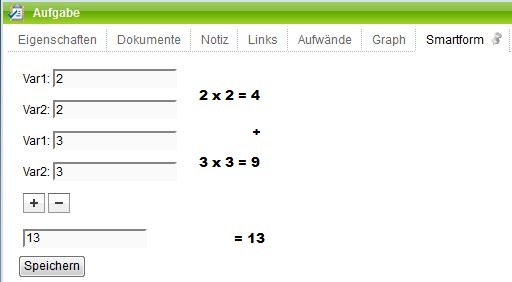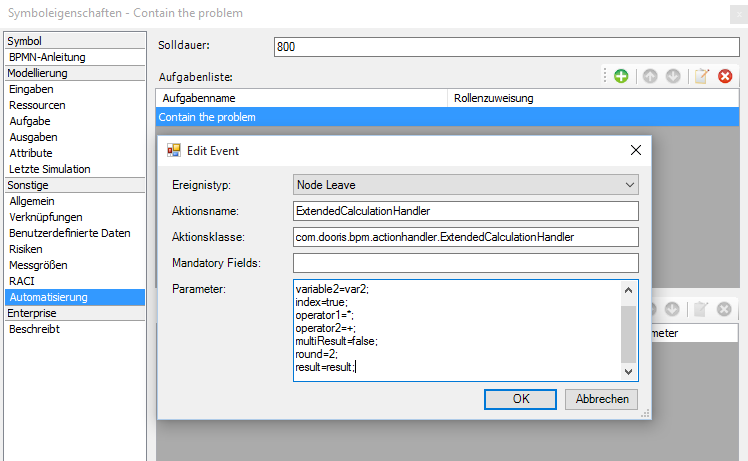This is an old revision of the document!
Table of Contents
 This page is not fully translated, yet. Please help completing the translation.
This page is not fully translated, yet. Please help completing the translation.
(remove this paragraph once the translation is finished)
ExtendedCalculationHandler
Description
The handler is given two variables, which it settles with the operator that is given to it.
It can also check if these variables appear more than once (var1[0], var2[0], var1[1], var2[1],…) and settles these, too.
The handler can be configured check if the variables appear multiple times; if so, it can save the sub-totals as variables
or settle these with a second operator
If no second operator was transferred, it settles the sub-totals with the first operator.
The handler can be configured to round the results.
Action Class
com.dooris.bpm.actionhandler.ExtendedCalculationHandler
Event Type
any
Action Name
any
Mandatory Fields
none
Parameter
variable1
First variable for performing calculations (see example)
variable2
Second variable for performing calculations (see example)
index
If index is passed the value “true”, the handler tries to find the two variables with the pattern “var[x]” (beginning with 0) and to settle these with one another. (see example)
operator1
First operator used for performing calculations. Possible options: +, -, *, /, mod(Modulo), poten. (see example)
operator2
Second operator used for performing calculations. Possible options: +, -, *, /, mod(Modulo), poten. (see example)
result
Name of the new variable, to which the results will be written. If sub-totals should be saved, these are saved using the pattern result[x]. (see example)
multiResult
If multiResult is given with the value “true”, sub-totals will be saved as process variables. (see example)
round
Here a number can be given, which tells how many decimal places should be kept when rounding.
If nothing is entered, the numbers will not be rounded. (see example)


